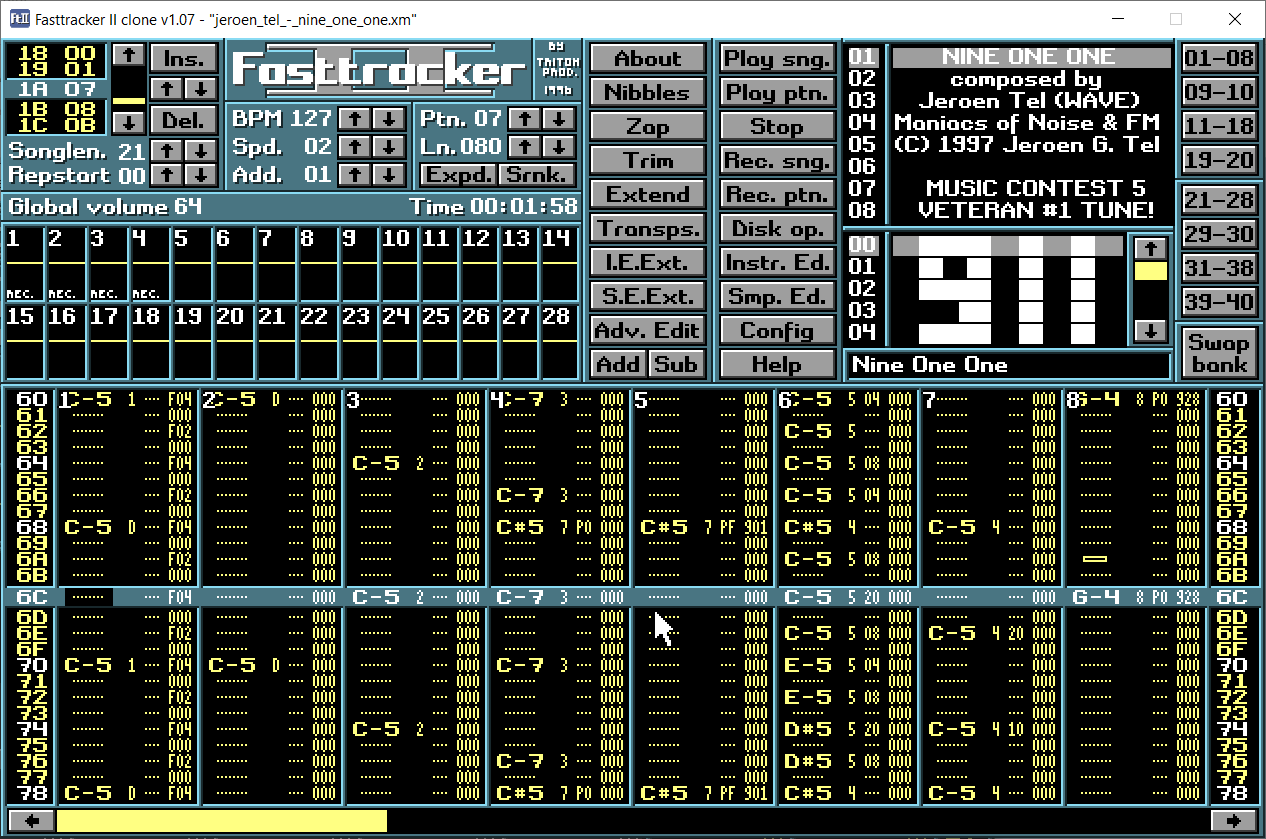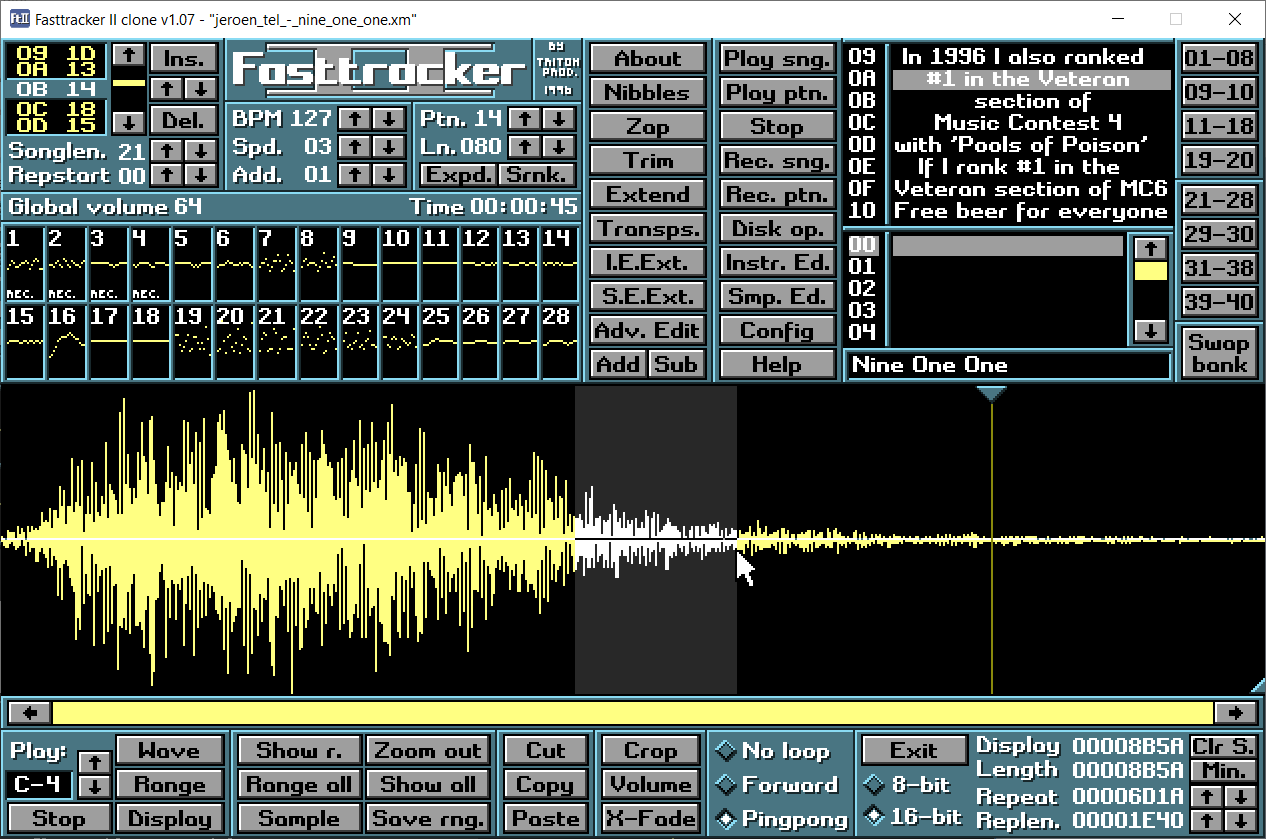ref: f754f40b5c5626b0f762d07a8941ef85e11577c0
parent: 2d2ef2908d0008ff66352dc97d7ceb59f715d5bf
author: Olav Sørensen <olav.sorensen@live.no>
date: Wed Jan 27 06:59:20 EST 2021
Update README.md
--- a/README.md
+++ b/README.md
@@ -6,16 +6,27 @@
*What is Fasttracker II? Read about it on [Wikipedia](https://en.wikipedia.org/wiki/FastTracker_2).*
-# Screenshots
-
-
-
-
# Releases
Windows/macOS binary releases can always be found at [16-bits.org](https://16-bits.org/ft2.php).
Linux binaries can be found [here](https://repology.org/project/fasttracker2/versions). \
If these don't work for you, you'll have to compile the code manually.
+
+# Improvements over original DOS version
+- The channel resampler/mixer uses floating-point arithmetics for less errors, and has a high-quality interpolation option (8-point windowed-sinc)
+- The sample loader supports AIFF samples and more WAV types. It will also attempt to tune the sample (finetune/rel. note) to its playback frequency on load.
+- It contains a new "Trim" feature, which will remove unused stuff to potentially make the module smaller
+- Drag n' drop of modules/samples
+- The waveform display in the sample editor shows peak based data when zoomed out
+- Text boxes has a text marking option, where you can cut/copy/paste
+- MOD/STM/S3M import has been slightly improved (S3M import is still not ideal, as it's not compatible with XM)
+- It supports loading XMs with stereo samples, uneven amount of channels, more than 32 channels, more than 16 samples per instrument, more than 128 patterns etc. The unsupported data will be mixed to mono/truncated.
+- It has some small additions to make life easier (C4/middle-C Hz display in Instr. Ed., envelope point coordinate display, etc).
+
+# Screenshots
+
+
+
# Compiling the code
Build instructions can be found in the repository (HOW-TO-COMPILE.txt).
--
⑨